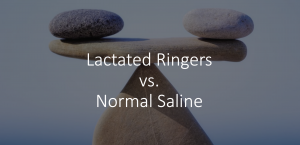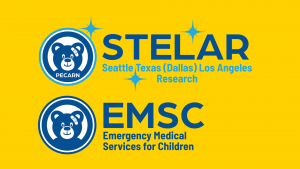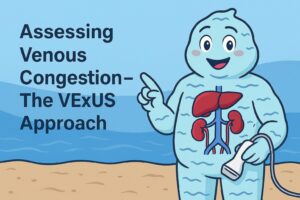Author: Christopher I. Doty, MD FAAEM FACEP (@PoppasPearls, Professor & Vice Chair for Education, Department of Emergency Medicine, University of Kentucky) // Edited by: Alex Koyfman, MD (@EMHighAK) and Brit Long, MD (@long_brit)
1) Why still Emergency Medicine?
Emergency Medicine allows us to intervene in peoples’ lives when they need it the most. On a patient’s worst day, we are there to make a positive impact. We stand guard on the front lines to take care of everyone who needs us. We live in servitude of the world’s citizens. It is an honor.
2) Most impactful case?
I took care of a 5-year-old kid about 10 years ago that had fallen from some steps while visiting family in Brooklyn. He was a normal kid before the fall but had a devastating neurological presentation. His head CT showed a large epidural hematoma. The neurosurgeon, from home, told me that the kid had an unsurvivable injury and to admit to Peds to await death. Upon questioning about his “care” and the possibility of performing a surgical decompression and seeing how the child responded, he then told me the child had a second injury (cranial subluxation on C1) as well, he felt the child was too far gone, and he was not going to be party to making another “vegetable” to live in a nursing home for the rest of his life. There was no evidence on the head CT or lateral C-spine XR to support what he said. I went nuts on the neurosurgeon and told him that I was going to make a HUGE deal of this case. He yelled and screamed, but I stood firm. He came in, decompressed the epidural, and took credit with the family for the save. The child had complete recovery. While the neurosurgeon performed the operation, he has no right to claim the successful outcome. The neurosurgeon never said another word to me about it. I still made a huge stink about the case. At discharge, the kid was normal. What I didn’t know at the time was that the dad had come into the doctors’ area and heard me screaming at the neurosurgeon on the phone and knew what I had done for his child. I get a Christmas card every year from the family.
3) Most important career decision leading to satisfaction?
I became a medical educator. I have the honor of shaping the next generation of EM physicians, and that has made ALL the difference in my professional life.
4) What does future of EM look like?
If we can keep mindful of the impact we have in the world and learn to trust and rely on each other, we will lead the house of medicine the next 20 years like we led the last.
5) Greatest achievement / why giving back is important?
I have helped shape the career and abilities of over 400 residents. That magnifies my impact tremendously over just the patients I personally took care of. I have invested heavily in the success of my graduates. I am proud of what they have done.
6) Favorite failure?
Not a classic favorite… I lost a resident to suicide. It was the worst day of my professional life. How could I have missed it? How could I have failed my resident so badly? It is my favorite because: it was so painful, it was so impactful, it changed my career in an instant, and it taught me about the risks of our jobs. I am a different educator today, a better educator, because of that failure.
7) One thing you would change about our field?
We MUST begin to rely on each other and begin to accept the idea that we have a difficult job. We need to be willing to talk about our challenges, listen to our peers, talk about our jobs. We need to normalize the conversation around our struggles. Too often we struggle in silence for the fear of being seen as weak by our peers… being kicked out of our “tribe”. I think that these struggles make us part of the tribe, not too weak to be part of it. We all face the same challenges.
8) Something that you love that has indirectly impacted your EM career?
I receive tremendous strength from my family. I married a wonderful woman who is a tremendous source of strength and energy for me. She has given me two perfect children. She is the rock that holds us together. With all these amazing attributes, it should come as no surprise that she is an Emergency Physician.
3 people you’d like to see fill this out
1) Felix Ankel
2) Amal Mattu
3) Jonathan Bronner









2 thoughts on “EM Collective Wisdom: Christopher I. Doty”
This is a pithy and powerful story. His story of dealing with a medical bully resonates with many EM doctors. EM can lead the way in tackling the problem of physician bullying. A young person has a life because of his bravery in the face of profound denigration.
Also his story of a resident suicide is most impactful. Physician suicide is a terrible thing and his willingness to share his story underscores that this man is brave. It takes that to recognize EM’s challenges. We need to support each other.
Pingback: EMDOCS’ EM MINDSET-EM COLLECTIVE WISDOM: CHRISTOPHER I. DOTY – UK WildCat EM